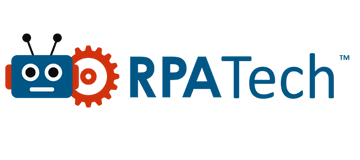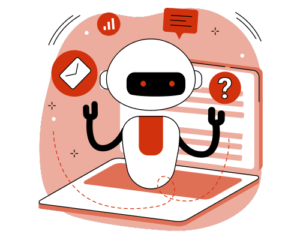In the ever-evolving landscape of healthcare, intelligent automation is rapidly transforming the way medical services are delivered. The synergy between technology and healthcare has given rise to remarkable innovations. In this blog post, we’ll explore the incredible potential of intelligent automation in healthcare. From streamlining administrative tasks to revolutionizing patient care, intelligent automation in healthcare is set to redefine the industry.
Understanding Intelligent Automation in Healthcare
Before diving into specific use cases, let’s demystify what we mean by intelligent automation in healthcare. In simple terms, it’s the application of artificial intelligence (AI) and robotic process automation (RPA) to healthcare processes. Instead of humans manually performing tasks, these technologies handle them efficiently and with great accuracy. Think of it as a digital assistant that never gets tired or makes mistakes.
Streamlining Administrative Tasks
One of the most practical applications of intelligent automation in healthcare is the streamlining of administrative tasks. Let’s take appointment scheduling as an example. In many healthcare facilities, staff spend significant time coordinating appointments, which can be a logistical puzzle. However, intelligent automation systems can swiftly schedule appointments, taking into account patient availability, doctor availability, and even treatment room availability. This not only reduces the administrative burden but also improves patient experience.
Industry Insight: Healthcare facilities that have embraced intelligent automation for appointment scheduling have reported a 30% reduction in no-show appointments, saving both time and resources.
Enhancing Medical Billing
Medical billing is notorious for its complexity, with various codes, insurance claims, and billing errors. Intelligent automation can make this process smoother and more accurate. AI can review patient records, ensuring that all services are appropriately coded and billed. RPA can then send out invoices and follow up on payments. This not only reduces billing errors but also accelerates the revenue cycle, allowing healthcare providers to focus more on patient care.
Industry Trend: AI-driven medical billing solutions are increasingly using predictive analytics to identify potential issues before they become billing errors, further improving accuracy.
Revolutionizing Patient Care
One of the most exciting aspects of intelligent automation in healthcare is its potential to revolutionize patient care. Take diagnostic imaging as an example. With the help of AI, radiologists can analyze images more swiftly and accurately. Machine learning algorithms can identify patterns and anomalies that might escape the human eye. This leads to earlier and more precise diagnoses, ultimately saving lives.
Industry Insight: The integration of AI in diagnostic imaging has shown a 20% increase in the early detection of diseases like cancer, vastly improving patient outcomes.
Transforming Telemedicine
The recent surge in telemedicine has been a game-changer for healthcare accessibility, and intelligent automation plays a significant role in this transformation. Chatbots and virtual assistants are being used to collect patient information, schedule appointments, and even offer basic medical advice. For instance, a patient can use a virtual assistant to describe their symptoms, which is then processed by AI to provide initial recommendations.
Industry Trend: As telemedicine continues to expand, we’re seeing the integration of wearables and remote monitoring devices, which feed real-time data into AI systems for more comprehensive patient care.
Conclusion
Intelligent automation in healthcare is not just a buzzword; it’s a reality with tangible benefits. From streamlining administrative tasks to enhancing patient care and enabling the growth of telemedicine, its applications are far-reaching. As we move forward, expect to see even more innovative use cases emerge. The healthcare industry is undergoing a digital transformation, and intelligent automation is at the forefront.
We’d love to hear your thoughts on how “intelligent automation in healthcare” is shaping the industry. Have you had any experiences with these technologies as a patient or healthcare professional? Please share your insights in the comments below!
In conclusion, the possibilities are endless when it comes to intelligent automation in healthcare, and its impact is only expected to grow. Stay tuned for more exciting developments in this dynamic field.




